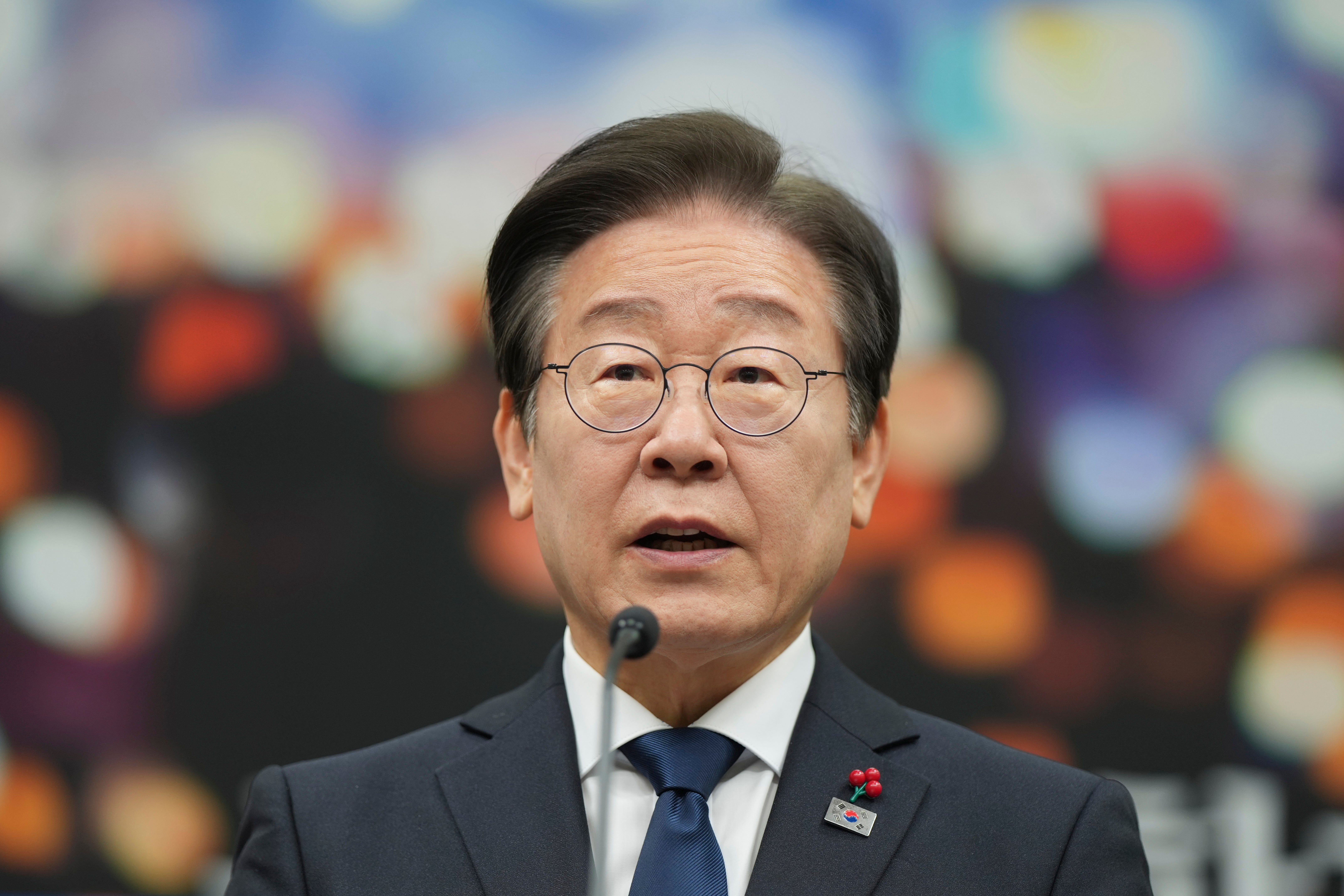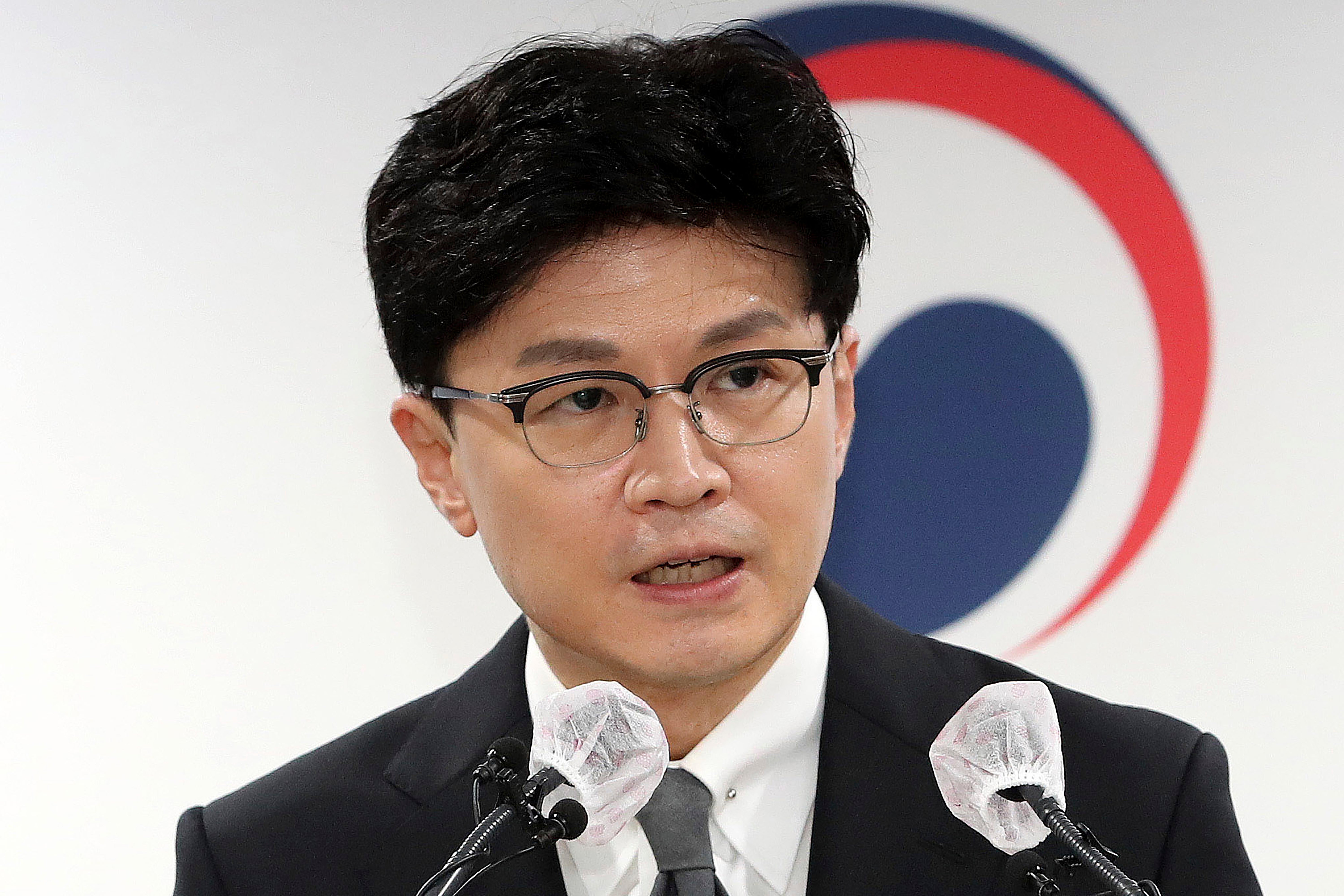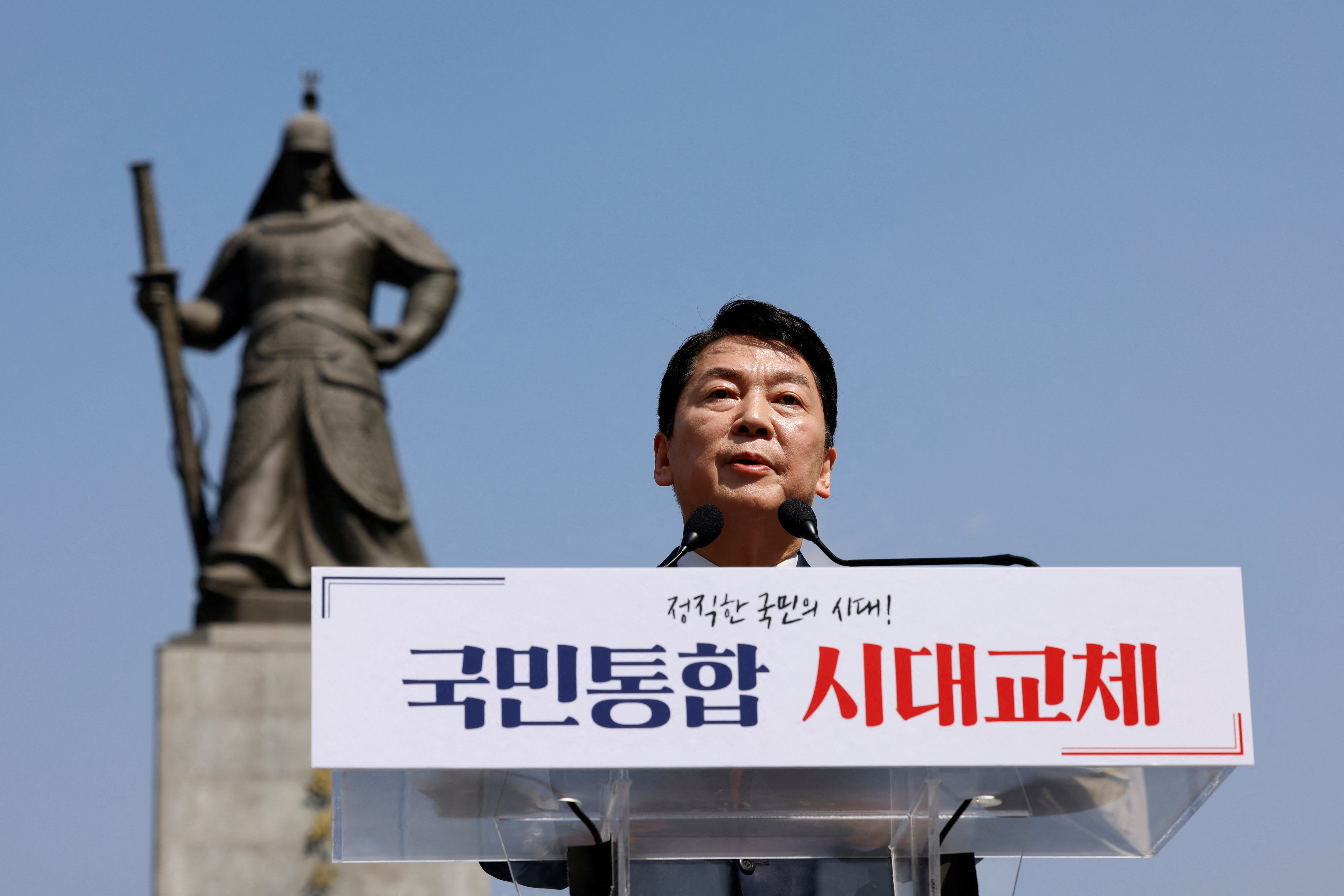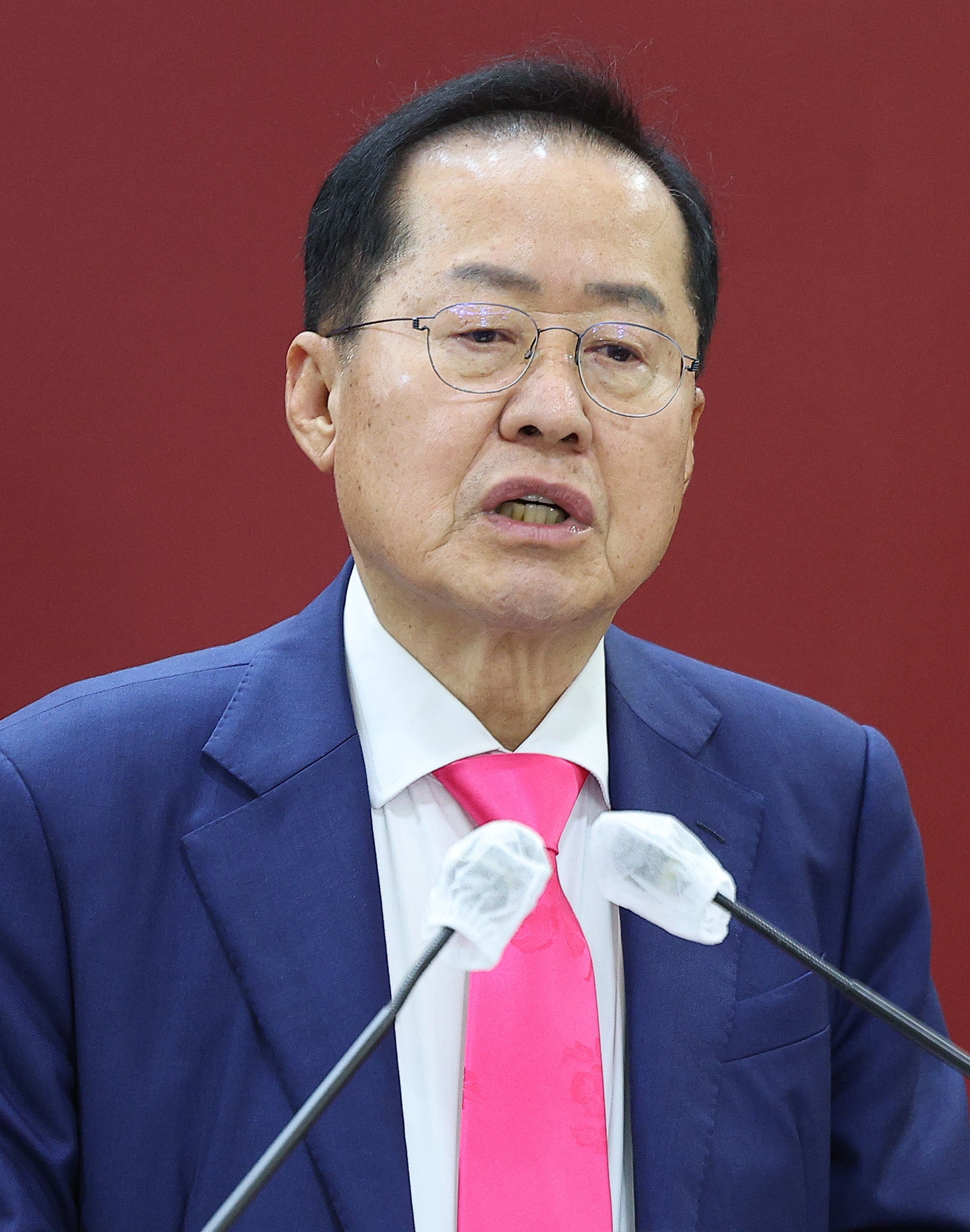A former prosecutor, an opposition leader who survived an assassination attempt, and a supporter of impeached president Yoon Suk Yeol are among the candidates who have put their hat in the ring for the 3 June presidential election in South Korea.
The stage has been set for an election following the constitution court’s unanimous verdict on Mr Yoon’s impeachment to remove the conservative leader from office over his decision to impose martial law in December last year.
Intense political polarisation is expected to turn the election into a head-to-head contest between Mr Yoon’s ruling People Power Party (PPP) and its main liberal opponent, the Democratic Party (DP), which currently controls the National Assembly.
The PPP faces an uphill challenge as it attempts to regain public trust and mend deep internal rifts triggered by Mr Yoon’s short-lived declaration of martial law that plunged the country into uncertainty and unprecedented political turmoil.
As of now, several candidates have declared their intent to run. The political parties are expected to launch primaries soon to select their presidential candidates in the coming days.
Here are some potential contenders for the presidential election.
Lee Jae Myung
The leader of the main opposition DP, Lee Jae Myung, is widely regarded as the frontrunner to win the elections. He declared his bid for the presidency on 10 April and vowed to fix inequality and spur economic growth in the country.
The 61-year-old Lee narrowly lost to Mr Yoon in the 2022 presidential election with a margin of 0.7 per cent of the votes polled.

Known for being outspoken and positioning himself as an anti-elitist, recent polls show him leading by significant margins, with some surveys indicating up to 40 per cent support as of December 2024.
On 2 January 2024, Mr Lee survived an assassination attempt during a visit to a construction site on Gadeok Island in Busan. He was stabbed in the neck but recovered after receiving prompt medical attention.
Mr Lee was among the lawmakers who rushed to the National Assembly on the night of Mr Yoon's martial law declaration to ensure parliament voted down the military order. Despite ongoing legal challenges, including trials for bribery and a past election law violation, he remains eligible to run and is a populist figure with strong backing from liberal voters.
Han Dong Hoon
The ex-leader of South Korea's ruling PPP is considered a top conservative contender in the race as he remains a particularly vocal critic of Mr Yoon's martial law declaration.
The 51-year-old prosecutor-turned-politician resigned in December as PPP’s leader amid friction in the party for supporting Mr Yoon’s impeachment.
He has faced criticism among Mr Yoon’s supporters after he was accused of betraying the party and allowing Mr Yoon's impeachment by the National Assembly in December.

Mr Han declared his candidacy on 10 April and presented himself as the rival to Mr Lee.
“Who can defeat Lee Jae-myung? Who does he fear the most?” Mr Han asked at a press conference at the National Assembly in Yeouido, Seoul. “We must choose someone who can win. I will achieve a decisive victory, together with the people.”
Mr Han, a former justice minister under Mr Yoon, entered politics as leader of the ruling People Power Party in December 2023, ahead of the 2024 general election. Once close to Mr Yoon due to their shared background as prosecutors, Mr Han later led the party’s non-Yoon faction and reportedly clashed with him over candidate nominations.
Mr Han’s relationship with Mr Yoon started to deteriorate earlier this year when he suggested that the first lady apologise over allegations of accepting a luxury Dior bag.
Ahn Cheol Soo
A former entrepreneur and a professor Mr Ahn has also announced his candidacy.
A veteran politician and former presidential candidate in 2012, 2017, and 2022 he positions himself as a "clean" candidate, emphasising economic growth through technologies like artificial intelligence.

Mr Ahn fought the last three presidential elections, winning more than 21 per cent of the popular vote in 2017, but dropping out and endorsing other candidates in the other two.
Kim Moon Soo
The Minister of Employment and Labor under the Yoon administration, Mr Kim declared his intention to run on 9 April after he resigned from his position.
The former minister has been polling higher than other conservative contenders as he criticised the arrest of Mr Yoon and the impeachment hearings conducted by the Constitutional Court.
The 73-year-old is likely to be the oldest candidate to run in the elections, and his candidacy aims to consolidate the conservative base following Mr Yoon’s removal.
"I, Kim Moon-soo, will surely rein in Lee Jae-myung and the Democratic Party that are leading the Republic of Korea to chaos and destruction with their lies and sweet talk,” he said.
Hong Joon Pyo
Another possible contender from the People’s Power Party could be Hong, the mayor of the conservative stronghold Daegu.
He announced that he would resign as the mayor to compete with Mr Kim for the nomination.
The five-term lawmaker for the PPP and its predecessors lost the 2017 presidential election to Moon Jae-in. He is another PPP candidate who opposed Mr Yoon’s impeachment.

He has called for military reforms for the mordernisation of the armed forces and a volunteer military system to reduce the burden of conscription.
Parties are expected to hold primaries in the coming weeks, with official campaigning starting around 12 May. The election uses a single-round plurality voting system, meaning the candidate with the most votes wins, and the victor will take office immediately after the results are confirmed, without the usual two-month transition period.
The bizarre life of a failed North Korean assassin who became a pastor in the South
What Asian countries hit hard by Trump’s tariffs are doing to save their economies
South Korea sets June election date to choose Yoon’s successor as president
South Korea’s military fires warning shots as North Korean soldiers cross border
More than 150 Chinese mercenaries fighting against Ukraine, says Zelensky
US to send long-range surveillance drones to Japan amid tensions in Taiwan







